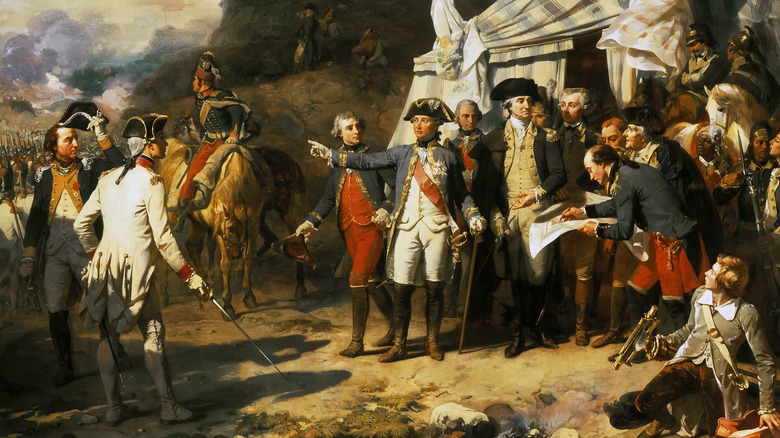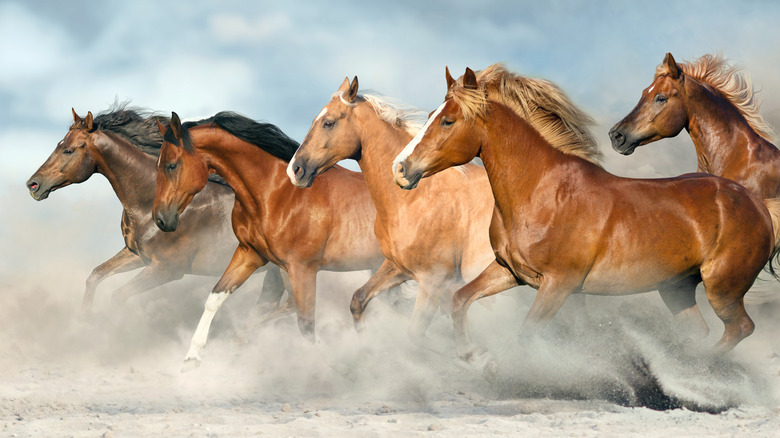The Sad Truth About Horses In The Battle Of Yorktown
If you studied history in an American classroom, you're likely familiar with the Battle of Yorktown. This three-week siege featuring General George Washington and Alexander Hamilton notoriously marked the end of the Revolutionary War (via History). The war for colonialism claimed many lives, but not all of the fallen soldiers were human beings.
Today, we salute and acknowledge the 400 horses that valiantly galloped to the forefront of the battlefield only to be slaughtered by the very men they carried. How did this happen? The answer, in short, is a shortage of food, water, and supplies. Mental Floss reports that in an act of desperation, British General Charles Cornwallis commanded his army to slaughter their own horses. The bloodbath that ensued may not be as well known, but it's certainly one worth noting. According to the Daily Press, September 30th, 1781 was the tragic day that the York River brimmed with the bloody carcasses of hundreds of murdered horses who had been taken from local farms.
The York River could not hold the remains of so many horses
In many ways, the Battle of Yorktown was as tragic as it was monumental. Hundreds of lives were claimed on both sides — human lives and animal lives alike. In fact, Mental Floss goes on to explain that the number of slaughtered horses was so high that the York River could not hold their remains. As if in protest to this horrific act, the carcasses were thrust up out of the river and buoyed back onto the shoreline. Historians claim this left a horrendous stench in the air — the smell of evil deeds, no doubt.
As if this historical account does not suffice, archeologists are still to this day unearthing horse carcasses that they suspect date back to the Yorktown incident. The Daily Press notes one recent discovery of a horse found amid the skeletons of what appears to be two Yorktown soldiers. From the shores to the rivers, from present to past, the sad truth about the Battle of Yorktown horses continues to unravel. There lies no doubt that these hooved soldiers deserve to be counted among the casualties and saluted for their bravery.

